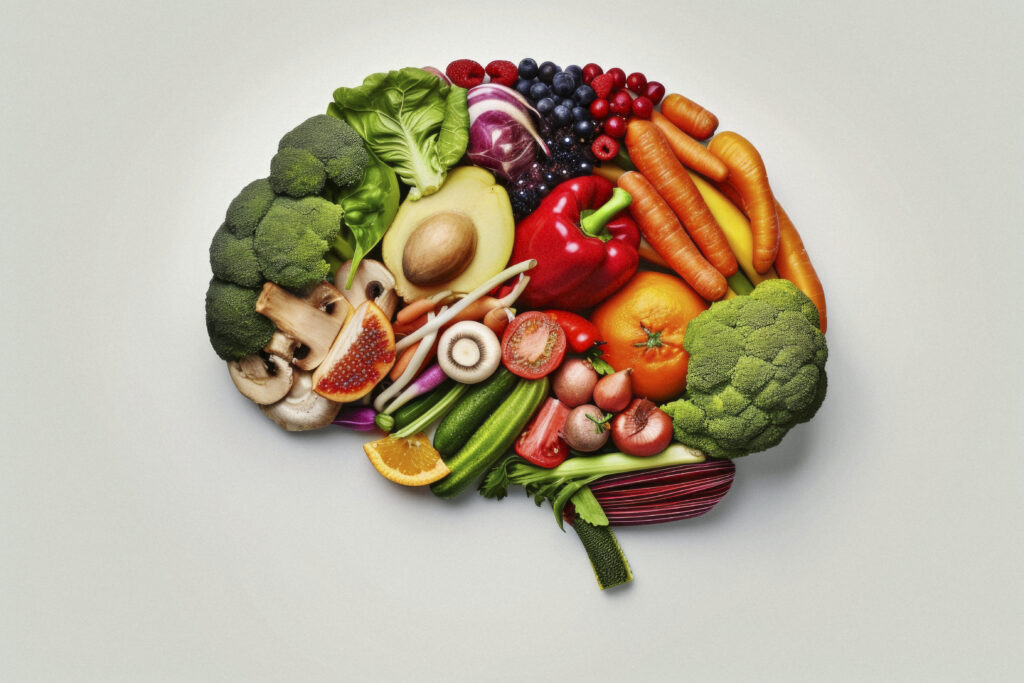Brain Nutrition: Foods and Supplements for Cognitive Health
Introduction
Most people realise that diet plays a role in physical health, but it’s easy to overlook how much it affects the brain. The nutrients you consume each day are linked to everything, from how well you can concentrate to how well you remember things. You need to give your brain a good diet if you want it to work at its best. In this article, we’ll explore which foods are known to support brain function and which supplements can give your mind a natural edge.
Why the Brain Needs Proper Nutrition
Your brain works non-stop. Processing information, regulating emotions, and maintaining body balance continue while you sleep. All this activity uses a surprising amount of energy and nutrients.
When the brain doesn’t get what it needs, your thinking can feel slower. You might struggle to stay focused, find it harder to recall information, or feel more irritable than usual. A diet rich in essential nutrients, however, can support clearer thinking, better memory, and improved mood.
Best Foods for Supporting Brain Health
Let’s look at everyday foods that can help your mind stay sharp.
1. Oily Fish
Omega-3 fats come from salmon, mackerel, and sardines, among other fish. These fats have been linked to better memory and mental clarity because they are an essential component of brain cell membranes.
2. Blueberries
Small but powerful, blueberries contain antioxidants that help protect brain cells from stress. They’re also thought to support healthy communication between brain cells.
3. Leafy Greens and Broccoli
Vegetables like kale, spinach, and broccoli are packed with nutrients that support the brain. Vitamin K, which is found in leafy greens, plays a key part in keeping your memory clear and your mind working well
4. Eggs
Choline, a nutrient that aids the brain in the production of important neurotransmitters associated with mood and memory, is abundant in eggs. They also provide B vitamins, which are essential for mental energy.
5. Pumpkin Seeds
Pumpkin seeds make a brain-friendly snack, packed with important minerals like magnesium, iron, zinc, and copper – all of which support clear thinking and help combat mental tiredness.”
6. Walnuts
It’s interesting that walnuts look a bit like the human brain — and they just happen to be one of the best nuts for brain health too.. They’re high in omega-3 fats and antioxidants, both of which are known to benefit brain health.
7. Dark Chocolate
A little dark chocolate (at least 70% cocoa) can go a long way. it is rich in flavonoids, a touch of caffeine, and antioxidants — all of which can help lift your mood and sharpen your focus.
8. Wholegrains
Wholegrain foods like oats, barley, and brown rice provide slow-burning energy. This keeps your brain fuelled over the course of the day and helps prevent energy crashes.
Supplements That May Help Mental Performance.
It’s important to talk to your doctor before starting any new supplements.
1. Omega-3 (Fish Oil)
If you’re not eating oily fish regularly, a fish oil supplement may help support memory, focus, and long-term brain health.
2. B Vitamins
B6, B12, and folic acid are important for keeping the nervous system in balance. They’re also known to help reduce feelings of tiredness and support cognitive function.
3. D vitamin
Vitamin D helps the brain function and feel good. Since many people in the UK don’t get enough sunlight, supplements are often necessary during the winter months.
4. Magnesium
This mineral plays a role in how the brain manages stress and supports better sleep. It’s often used to ease anxiety and mental tension.
5. Ginkgo Biloba
A traditional herbal supplement, ginkgo may help with blood flow to the brain and has been studied for its effects on memory and concentration.
6. L-Theanine
L-theanine, which can be found naturally in green tea, can help you feel calm without making you sleepy. It’s often taken alongside caffeine for smoother focus and less jitteriness.
Daily Habits That Help Keep Your Brain Sharp
Food and supplements are important, but lifestyle habits matter just as much. Here are some simple ways to support your mind each day:
Drink enough water – Even mild dehydration can affect memory and attention.
Make sleep a priority by getting between 7 and 9 hours each night – it helps your brain reset and recharge properly. Exercise regularly – Gentle movement like walking boosts circulation to the brain.
Keep your mind active – Try crosswords, reading, or learning something new.
Manage stress – Breathing exercises, journaling, or mindfulness can help reduce mental fatigue.
Limit alcohol and avoid smoking – Both are known to harm long-term brain health.
Last Thoughts Supporting your brain doesn’t mean changing everything overnight. Small, consistent changes to your meals and daily routine can go a long way. Every step matters, whether you start by adding a few more vegetables or look into supplements like B vitamins or omega-3s. Good brain health isn’t about perfection. It’s about looking after your mind so you can think clearly, feel better, and stay sharp — now and as you grow older.
